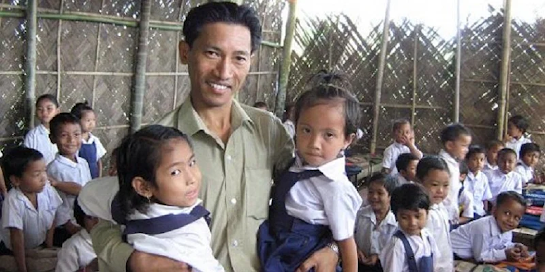Teachers to the aid for over 250 Covid affected patients: Akole Taluka, Ahmednagar, Maharashtra
Similar to the Spanish flu, the second wave of the Covid-19 has been far
more damaging than the former. The rural population that was previously well
safe from the first wave have now been impacted critically. This is majorly due
to medical infrastructure, equipment and better facilities being concentrated
in the urban cities than the rural regions. The proportion imbalance in the
number of ICU beds or oxygen in rural areas compared to urban area is quite
high and the numbers speak for itself with 22,145 oxygen beds and 9,271 ICU
beds in cities whereas merely 338 oxygen and 51 ICU beds in rural areas.
As difficult as the situation seems,
coping with this like the rest of people are Zilla Parishad teachers from Akole
taluka in Ahmednagar, Maharashtra. A taluka with an average of 20,000
population and one amongst many such talukas in India where people are trying
their hardest to strive the Covid pandemic.
The story goes as told by Rajendra
Sadgir, a teacher at one of the schools in Parkhatpur, that initially the
people struck by the virus did not seek medical help and prolonged getting
tested. And when they finally did take the RT-PCR test, the results took
another week to confirm by which time the patient’s conditions worsened and
oxygen levels took a hit.
With medical facilities being scarce
and having a single private hospital that could accommodate for only 30
patients meant having to look for other ways out, one of them being to move
patients to other cities around them such as Pune or Nagpur. This alternative
however was not as helpful as this meant the requirement for ambulances or any
other means of transportation to help move the patients, but this would only
cut more time along with the expenses that came with being admitted to better
hospitals which the patients would not necessarily be able to fulfill. The
inaccessibility to medical infrastructure was resulting in the uprising deaths.
With this underway, the teachers in the
Ziilla Parishad decided to raise enough funds to procure medical equipment, beds,
and anything else that would be necessary to facilitate improving and
recovering patients affected by the virus. Initially they contemplated on
buying the oxygen concentrators on their own but decided not to further that
plan as it did not seem feasible and instead an oxygen bed seemed like a better
alternative.
Thus, they proposed to contribute money
towards the cause and build up funds on their own. Those involved were primary
teachers, a whole of 1,100 of them who contributed 1,000 rupees each making it
a contribution of 11 lakhs while secondary school teachers collected about 12
lakhs. Another 10 lakhs were collected from private institutions, donors and
people representatives totaling to 33 lakhs. This was used to procure enough
oxygen beds and other necessary equipment. The only cost patients had to bear
was for the medications whereas the rest was all taken care of by the hospital.
Rajendra talks of plans to expand the facilities provided by adding in ventilator support which happens to be a non-invasive ventilation system. As for the success of their efforts, it is deemed that while serving over 250 people, the deaths of 25 people per day from the taluka has lowered down to 21 deaths in the past month. This comes as a result of all their combined efforts to better the lives of the people in their taluka and fight the pandemic and is a story we all should learn from.



Comments
Post a Comment